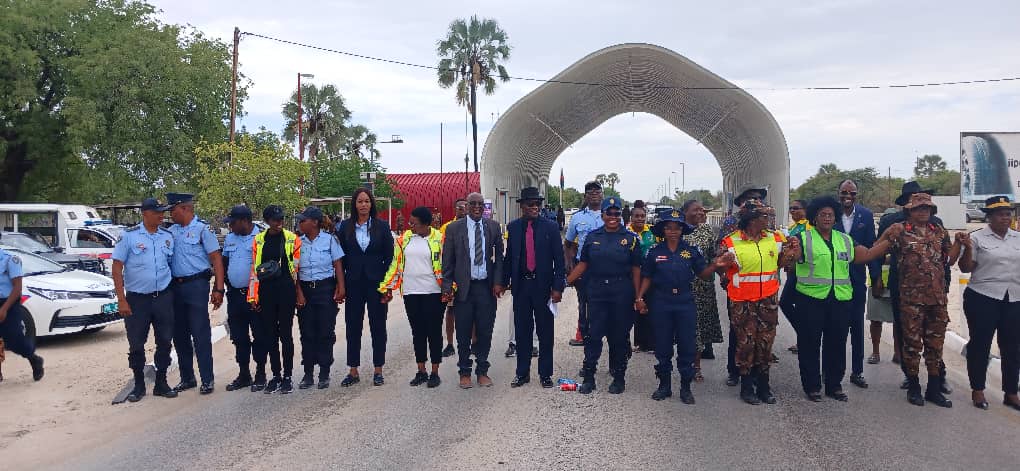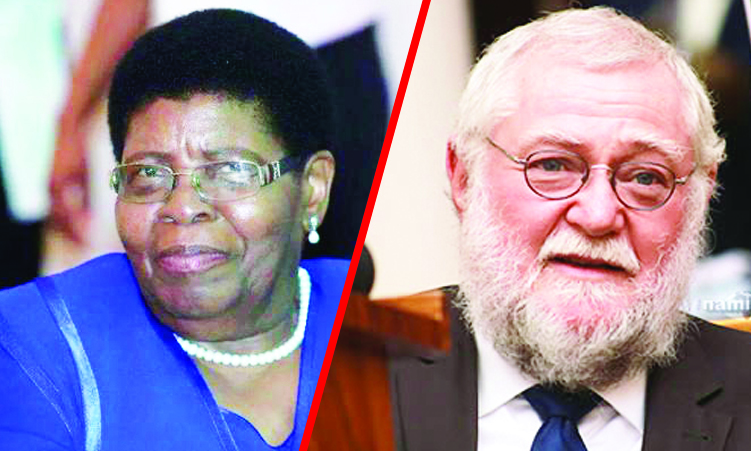· NDJODI NDEUNYEMA
Earlier this week, the Namibian High Court denied bail on appeal to Michael Amushelelo. The circumstances were that he, together with others, including a well-known social justice activist and a young parliamentarian, were arrested at a protest against high unemployment rates on Independence Day.
The police denied them permission to protest on the day and an urgent appeal to the High Court against the police decision also failed.
On the morning of the said protest, Amushelelo and others gathered with the view, they claimed, to inform those who had assembled that they had not received the necessary permission and could thus not protest as planned.
Several ‘leaders’ of the gathering, including Amushelelo, were arrested and detained in police custody.
While the others were released at various stages, Amushelelo remained in custody and applied for bail, which was denied by a magistrate.
His bail appeal was subsequently rejected by the High Court.
BAIL AS AN ENJOYMENT OF LIBERTY
The Namibian Constitution, among other rights, guarantees individual liberty. While the police are empowered to deprive individuals of their liberty, this should only be in very limited circumstances.
The continued detention of Amushelelo, a prominent political actor by any account, suggests that our courts are found wanting in defending the right to liberty.
In politically charged arrests such as this, courts serve as a counterbalance against potential excesses in power that favour political principals who govern with the advantage of appointing and controlling the police.
Under our system, the police are closely aligned with the executive branch, which requires us to be of added caution in guarding against the risk of abuse of police power for political purposes.
A DANGEROUS CULTURE OF POLICE AUTHORITY IN POLITICAL MATTERS
Namibia’s political space is becoming increasingly competitive, so we can expect more political contestation. As any given incumbent political establishment in Namibia would enjoy control of the police, we must ask: who will restrain the police from over-zealously using and even abusing their policing powers against political actors who they regard as a political nuisance? Rather than accepting a culture of authority from the police, our courts should insist on a culture of justification by the police. Courts should ardently defend the freedoms of association, peaceful protest, and expression. A failure to do so will have a democracy eroding chilling effect on those who wish, as is their right, to participate in the political arena.
Public opinion on Amushelelo, the causes he champions and the means he engages, is divided.
But it is precisely because Amushelelo, as a social activist and politician, is entitled to express contrarian and at times unpopular views that our Namibian democracy is worthy of its name.
It is a stain on our democratic credentials that as we approach almost a year to the next general elections, a key young political actor has been effectively muted through his incarceration.
The High Court decision itself accepted that the police had arrested Amushelelo “because of his mannerisms towards the police”. This suggests the malicious targeting of Amushelelo (and other political activists) by the police in singling them out. Yet, the High Court made nothing of this police excess in denying him bail.
PUNISHMENT IN ANTICIPATION
All Namibians, including Amushelelo, enjoy the right to be presumed innocent until proven guilty. As such, the principle repeatedly asserted by our courts since 1990, has been that no individual should be punished in anticipation of a conviction. While exceptional circumstances may exist to justify depriving an individual of their liberty before their conviction, this would not be the case in Amushelelo’s circumstances, not least because any future conviction on the charges he faces may well only result in a non-custodial sentence, a fine or a sentence less than the five months he has already spent languishing in pre-trial detention.
COURTS IN DEFENCE OF PLURAL DEMOCRACY
It is disappointing that the High Court has failed to balance the political context of Amushelelo’s arrest against other traditional considerations of bail.
If our criminal courts are to play their role in an increasingly contested political space, they should guard against police excesses that deprive dissenting political voices of their liberty.
Attempts to silence political foes using the criminal justice system is an age-old weapon in political toolkits. This was the hallmark of pre-independence Namibia, as the apartheid government sought to suppress political dissent.
It is also increasingly a nefarious tactic deployed in numerous African states as regimes have sought to stifle democratic participation through incarceration of opposition voices.
While our Constitution prohibits this, unless the courts are willing to play their role in guarding against political excesses and holding police power to account, our democratic space risks sliding backwards.
* Ndjodi Ndeunyema holds a doctorate in law and a masters in criminal justice from the University of Oxford, among others. He is a co-author of the book ‘The Law of Pre-Trial Criminal Procedure in Namibia’ published by the University of Namibia Press.
Stay informed with The Namibian – your source for credible journalism. Get in-depth reporting and opinions for
only N$85 a month. Invest in journalism, invest in democracy –
Subscribe Now!






